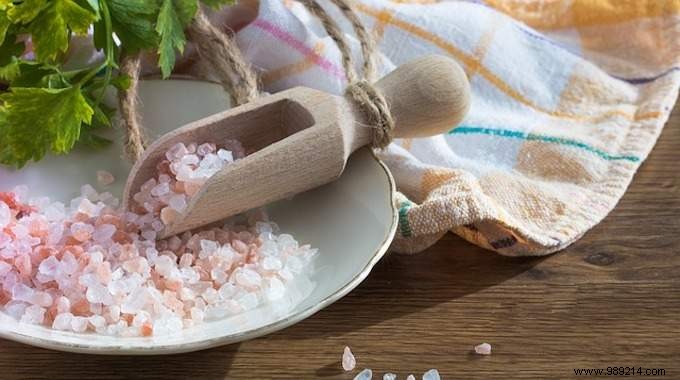
Our food is definitely too salty. Salt is present everywhere, in many food products. Fortunately, there are succulent substitutes to replace it without being frustrated.
I got it every time. When I was invited and that I systematically salted my dishes without even having tasted them, people often reproached me for it or at least raised the remark. But it's stronger than us, isn't it? We want salt because we want taste, that's all;)
But while studying naturopathy, I quickly understood that refined white salt had nothing good for your health, being able to cause cardiovascular and kidney diseases in particular. And even worse, according to the WHO, we would be 75% in France to consume more than 3 times the maximum recommended rate.
So I considered alternatives. I didn't want to live on a strict salt-free, bland and tasteless diet. I wanted to continue eating and lower my daily salt intake without being frustrated. I then opted for several dietary changes and other brain tricks:
Gomasio is a sesame salt. Obtained from a spoonful of coarse sea salt and 6 sesame seeds, it significantly reduces the amount of salt absorbed.
On the other hand, be careful not to consume 10 times more gomasio than you consumed salt before... You have to admit, it's very tempting. I particularly like to add it to my fish, my vegetables, my salads, even my soup. It gives a little extra crunch that salt does not offer.
If we add so much salt, it's because in general, we're trying to find a taste, a real one, a flavor that stays in your mouth. Therefore, why do it with salt? Spices do this very well too and are great for your health.
So I invested in several different herbs, condiments and jars of spices such as pepper, nutmeg, curry, cardamom, thyme, basil, turmeric or even saffron and ginger. Everything will depend on your tastes. Personally, I have a blast with all these flavors! It's much more fun than salt;)!
I also favor walnut and olive oils as well as flavored vinegars such as elderberry, raspberry or even tarragon vinegar for even more flavors. The key word is the SA-PI-DI-TE:character of sth that has taste.
And finally, I took the reflex to systematically marinate my fish or my vegetables in citrus juices, or a particular oil. I usually let them marinate for a few hours in the fridge, and that's it. My white fish finally has taste, even without salt!
Foods high in sodium are often high in salt and sodium. Personally, I avoid these products as much as possible and prefer "home" or even organic cooking. And sincerely, it's much more economical!
I also of course avoid consuming too many soft drinks, preserves and traditional salts. And no frustration since this change in eating habits, I assure you. On the contrary, I rediscovered certain flavors that I had been able to abandon.
Do you also have this annoying habit of systematically resalting your dishes? If not, do you have any specific advice? Come and talk about it in the comments.
If replacing the salt with herbs or sesame seeds doesn't seem economical at first glance, that's normal. But you have to think about the consequences of too much salt consumption and the cardiovascular and kidney problems that can result from it.
Salt substitutes greatly save your health and as they say "prevention is better than cure". Especially since healing costs us much more than investing in small daily tricks to avoid any disruption to our bodies.
You don't want to start until you've finished your pot of salt. Here are three tips for reusing it outside of your kitchen:to clean utensils, your carpet or faded jeans, for example.